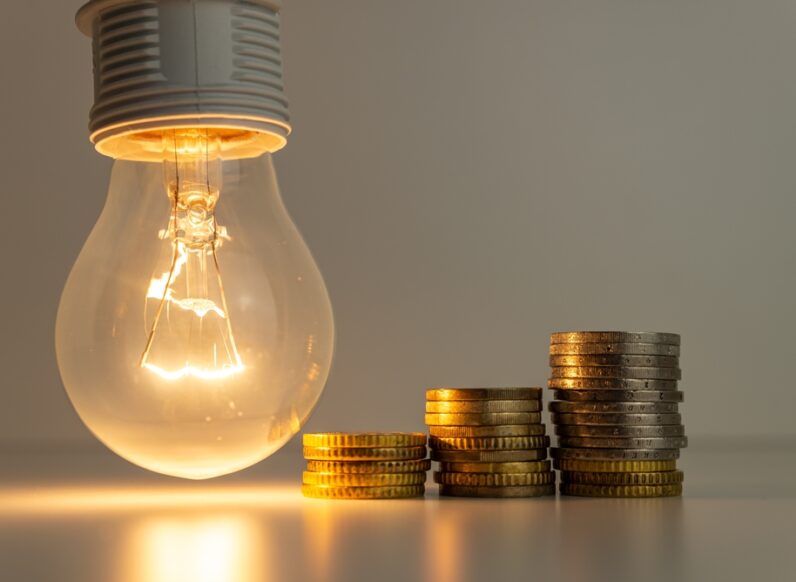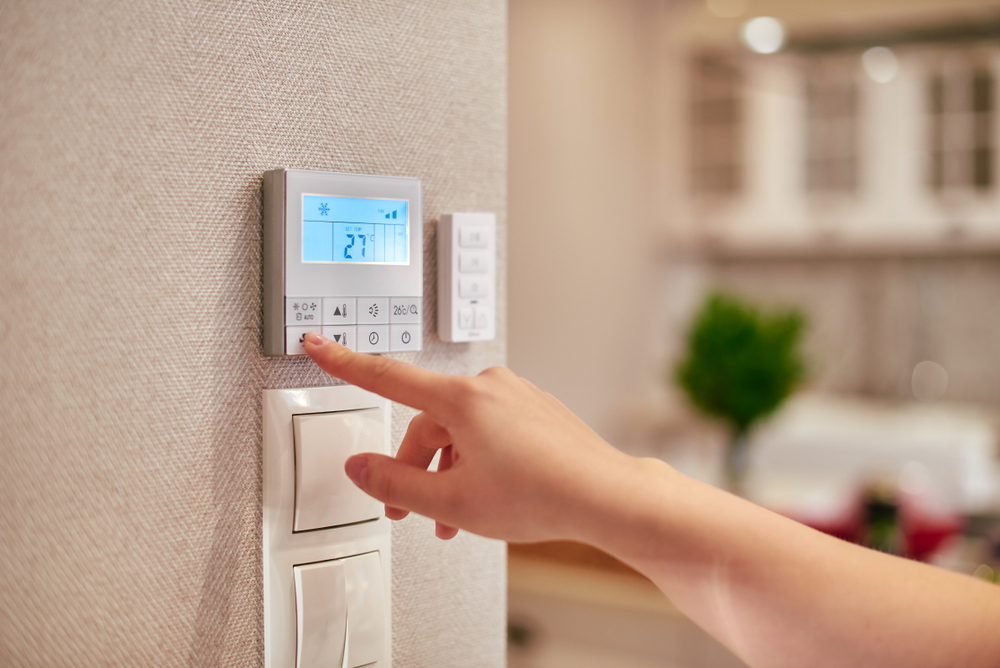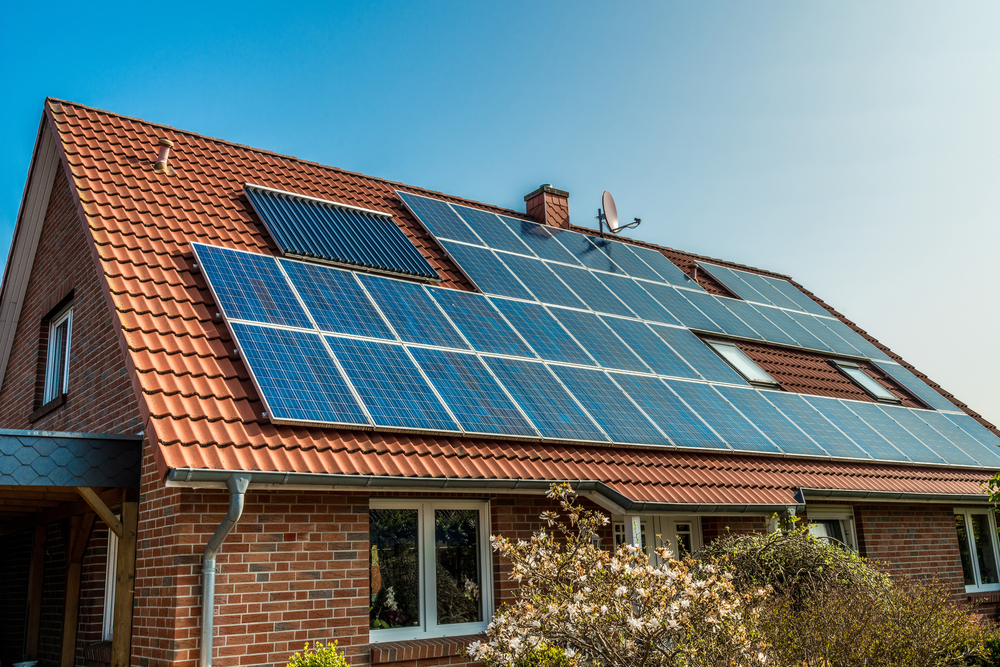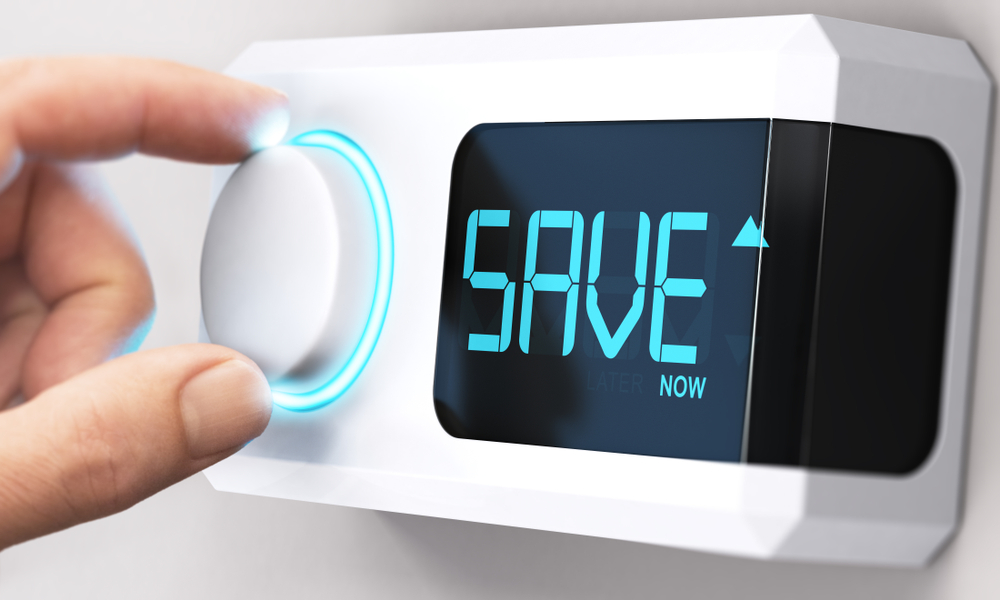Rising Energy Bills? Here Are 10 Tips to Minimise Your Energy Spending

Feb
As a homeowner, you may have noticed that your energy spending has suddenly increased. While this may not be an immediate cause of concern, it’s worth reviewing the impact that increased gas, water, and electricity bills have on your household budget.
Here is why energy bills are rising in Australia, and what to do about it.
Why Your Energy Bills Are Going Up
We often take the amount of energy we use for granted — be it water, gas or electricity. But now that energy prices are rising across Australia, many more of us are sitting up and paying attention to how we can be more energy efficient.
There are several factors that have contributed to Australia’s energy price hikes. Firstly, almost all our energy comes from gas and coal-powered stations. These energy sources can be found in abundance, but they aren’t exactly renewable.
So, when an international shortage of these fuels occurred in 2022, our energy spending skyrocketed. According to the Climate Council, average wholesale gas prices have quadrupled from $6 per gigajoule in 2020-21 to $25.50 in 2022. Further investment in wind, solar power, and other renewable forms of energy may help to alleviate energy costs in the future. Australia also has an aging energy infrastructure that is in dire need of an upgrade.
As well as this, we have seen international gas profiteering and supply disruptions due to the war in Ukraine, leading to even more hikes in energy bills. Until conditions improve both locally and internationally, you should expect your energy consumption to be more expensive.
Fortunately, there are many steps you can take to minimise your energy spending and consumption and increase energy efficiency. Here are some useful tips to help you lower your energy bills.
10 Tips to Minimise Your Energy Spending
#1 Adjust the Thermostat

Your thermostat may be contributing significantly to your energy bill without you even noticing. Heating and cooling can quickly become expensive if you don’t use your thermostat wisely.
Every degree over 20°C can add nearly 10% to your energy bill, and heating and cooling systems can easily increase your energy bill by 30% in general.
Most people set their thermostats at a certain temperature all year round and forget about it, which may not be the right thing to do when you are trying to optimise your energy spending. Generally speaking, you should set your air conditioner thermostat to 26 degrees or above in summer, and your heater thermostat to 18 to 20 degrees in winter. This will maintain a comfortable temperature while ensuring more efficient heating and cooling.
#2 Opt for Energy-Efficient Lighting
Good news — those advertisements for energy-efficient lightbulbs aren't a hoax! You will find yourself saving nearly 80% on your lighting costs when you choose energy-saving LED light bulbs. These lights not only use less power but also last for longer, meaning lower replacement costs.
So, the simple step of replacing your halogen bulbs can make all the difference in optimising your energy bills.
In addition to this, remember to use task-specific lights instead of switching all your lights on and off at once. For instance, if you are working or reading a book in bed, see if you can make do with just your desk or bedside lamp. If you are watching a movie, consider switching off all the lights to create a cinematic experience at home.
#3 Switch Off Appliances Promptly
While we are on the topic of switching off lights, ensure you switch off your electrical appliances when they are not in use.
Sure, some appliances such as your thermostat or refrigerator might need to stay switched on all the time. But there is no reason to leave your microwave, television or washing machine switched on at the wall constantly.
Some of these appliances consume electricity even when they are on standby mode and not being used, which is a complete waste of energy. Ensure that you switch off these appliances when you are going to bed or leaving your home to save standby power and reduce your bills.
#4 Avoid the Peak
Depending on your energy contract, you may end up spending a lot less on your energy bills if you avoid the peak times, which are generally between 10 PM to 7 AM. Instead, consider leveraging off-peak pricing and time-of-use pricing.
Since hot water can contribute to 25% of your household energy consumption, you might want to consider working on this aspect. Replace your traditional large hot water storage system with an off-peak storage system to see immediate differences in your energy bills.
Time-of-use pricing models mean the cost of energy depends predominantly on the time of the day that you use it. You will find that various energy retailers offer different kinds of tariffs for using energy at specific time periods.
You will need to look at your household energy use and select electricity and gas retailers that provide cheaper energy at times that are feasible for your household. You can also install a smart meter and monitor your energy use patterns to determine the best plan and provider for you.
#5 Minimise Energy Usage Wherever Possible
It is absolutely essential to understand the drawbacks of wasting precious resources such as water and energy in your household. Take steps to educate all your family members about this to lower your household energy usage and consequently, your spending.
For instance, you should reconsider keeping the water running while you brush your teeth or scrub your face. Similarly, for activities that may not require a fully lit room, consider using a single LED bulb instead of switching on all the lights in the room.
#6 Consider Switching to Solar Energy

Solar power has long been positioned as one of the most preferred renewable energy sources, yet very few households completely take advantage of it. Powering your household with solar energy can considerably reduce your energy spending while creating a more sustainable home.
Through solar panels, you can generate and store solar power for use in your Sydney home. The initial setup costs can be a deterring factor for many when they consider solar PVs and batteries, but in the long term, these systems typically pay for themselves by providing free electricity.
Solar PV systems generate electricity during the day, and if you are able to store this energy, you can easily leverage it to power your home 24/7.
#7 Insulate Your Home
If you want to proactively reduce your heating and cooling costs, a great solution is insulating your home. Home insulation can help you maintain a natural temperature in your home. It helps you keep your home cool in summer and warm in winter.
Doing so can significantly improve energy efficiency and reduce electricity costs in your home.
Your roof is a great regulator of the temperature in your home and so it should be insulated. An effectively insulated roof can help you save up to 20% on cooling and heating costs on your energy bill.
#8 Compare Electricity Plans & Providers
There are many energy companies and plans that you can consider for powering your Sydney home. You need to scout out the best plans and deals for energy so that all the appliances and electrically-powered fixtures can function economically and to their fullest potential.
You can use Energy Made Easy by the Australian government to compare prices and plans between energy providers. If you have access to your latest energy bill, your household energy consumption information, and the internet, you will be able to easily compare the gas and electricity prices of various energy providers.
#9 Upgrade Your Appliances and Power Board
One of the primary culprits for your rising energy bills may be the oldest appliances in your household. In a lot of homes in Sydney, appliances like washing machines, personal computers or microwaves might be decades old. These appliances might still be working, but they will also be more expensive than modern energy-efficient appliances.
In the past few years, we have seen an upsurge in appliances that are more energy-efficient and minimalistic. These provide a much cheaper and more sustainable solution than the older models, which consumed a lot more energy. As a result, it's always a good idea to keep upgrading your appliances to keep your energy spending in check.
Keep auditing the energy consumption of your existing appliances and check energy rating labels.
It is also a good idea to replace your traditional power boards with smart docking stations. They consume a lot less energy and will help you conserve extra power when connected to appliances on standby mode.
#10 Improve Personal Habits
Aside from the previous points, your habits are major areas of improvement to consider. Monitor your habits to narrow down the primary activities that might be driving up your energy consumption levels.
Maybe you can wash clothes using cold water, take shorter showers, or use electric appliances during off-peak times.
Check which habits you can get rid of or improve to lower your energy consumption and curb your power bills.
Save Energy, Save Money

We constantly seek ways to lower our spending. Cracking down on our energy bills may be a good place to start for a more economical household. Energy wastage is a major problem across the world, let alone in Sydney. Implementing these tips can effectively reduce the amount of spending for water, gas, and electricity.
If you are concerned about inefficient water or gas appliances and fixtures at home, All Needs Plumbing can assist you. We can help you reduce your water wastage and improve your gas bills in Hurstville, Cronulla. We also also do this for all the other surrounding Sydney suburbs. Contact us today for all the plumbing services you need - from installations and replacements to plumbing maintenance and repairs.


